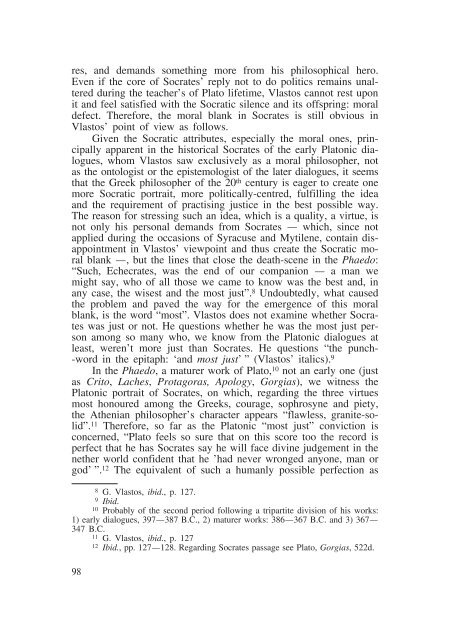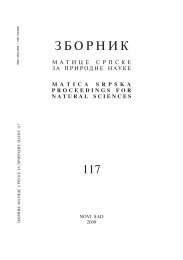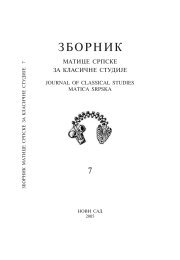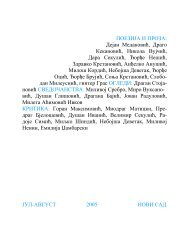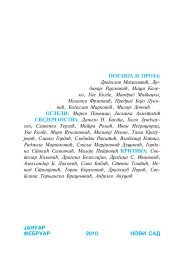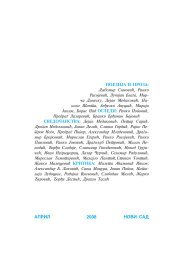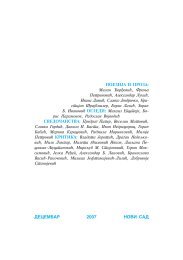You also want an ePaper? Increase the reach of your titles
YUMPU automatically turns print PDFs into web optimized ePapers that Google loves.
es, and demands something more from his philosophical hero.<br />
Even if the core of Socrates' reply not to do politics remains unaltered<br />
during the teacher's of Plato lifetime, Vlastos cannot rest upon<br />
it and feel satisfied with the Socratic silence and its offspring: moral<br />
defect. Therefore, the moral blank in Socrates is still obvious in<br />
Vlastos' point of view as follows.<br />
Given the Socratic attributes, especially the moral ones, principally<br />
apparent in the historical Socrates of the early Platonic dialogues,<br />
whom Vlastos saw exclusively as a moral philosopher, not<br />
as the ontologist or the epistemologist of the later dialogues, it seems<br />
that the Greek philosopher of the 20 th century is eager to create one<br />
more Socratic portrait, more politically-centred, fulfilling the idea<br />
and the requirement of practising justice in the best possible way.<br />
The reason for stressing such an idea, which is a quality, a virtue, is<br />
not only his personal demands from Socrates — which, since not<br />
applied during the occasions of Syracuse and Mytilene, contain disappointment<br />
in Vlastos' viewpoint and thus create the Socratic moral<br />
blank —, but the lines that close the death-scene in the Phaedo:<br />
“Such, Echecrates, was the end of our companion — a man we<br />
might say, who of all those we came to know was the best and, in<br />
any case, the wisest and the most just". 8 Undoubtedly, what caused<br />
the problem and paved the way for the emergence of this moral<br />
blank, is the word “most". Vlastos does not examine whether Socrates<br />
was just or not. He questions whether he was the most just person<br />
among so many who, we know from the Platonic dialogues at<br />
least, weren't more just than Socrates. He questions “the punch-<br />
-word in the epitaph: ‘and most just' " (Vlastos' italics). 9<br />
In the Phaedo, a maturer work of Plato, 10 not an early one (just<br />
as Crito, Laches, Protagoras, Apology, Gorgias), we witness the<br />
Platonic portrait of Socrates, on which, regarding the three virtues<br />
most honoured among the Greeks, courage, sophrosyne and piety,<br />
the Athenian philosopher's character appears “flawless, granite-solid".<br />
11 Therefore, so far as the Platonic “most just" conviction is<br />
concerned, “Plato feels so sure that on this score too the record is<br />
perfect that he has Socrates say he will face divine judgement in the<br />
nether world confident that he 'had never wronged anyone, man or<br />
god' ". 12 The equivalent of such a humanly possible perfection as<br />
8 G. Vlastos, ibid., p. 127.<br />
9 Ibid.<br />
10 Probably of the second period following a tripartite division of his works:<br />
1) early dialogues, 397—387 B.C., 2) maturer works: 386—367 B.C. and 3) 367—<br />
347 B.C.<br />
11 G. Vlastos, ibid., p. 127<br />
12 Ibid., pp. 127—128. Regarding Socrates passage see Plato, Gorgias, 522d.<br />
98


